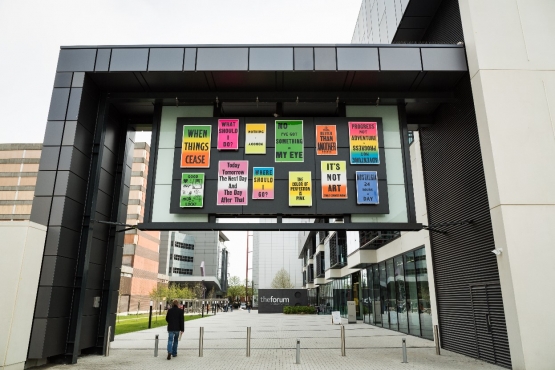Ed Atkins is a British artist currently living and working in Berlin. He has exhibited internationally, including recent exhibitions at the Stedelijk Museum, Amsterdam, Hammer Museum, Los Angeles and New Museum Triennial, New York (all 2015), Serpentine Gallery, London (2014), Kunsthalle Zurich (2014); MoMA PS1, New York (2013), Chisenhale Gallery, London (2012) as well as the Lyon and Venice Biennales (2013). Atkins' video, sound, drawing and writing explores the limits of representation through CGI, performance and rhythm. His practice particularly explores the ambivalent distinctions between so-called material and immaterial worlds, the digital and the analogue, the figurative and the literal.
Dominic van den Boogerd is director and tutor at the international artists’ institute De Ateliers in Amsterdam. His reviews and articles on contemporary art have been published in numerous art magazines, including Parkett, Frieze, ArtReview, Metropolis M and De Witte Raaf. He wrote essays for books and exhibition catalogues on a.o. Marlene Dumas, René Daniëls, Luc Tuymans, Mary Heilmann, Fiona Tan, Thomas Houseago and Michael Raedecker. He was guest tutor at the Fachhochschule für Kunst und Gestaltung in Bern, Switzerland, the Ruskin School of Art in Oxford and the Dublin Institute of Technology and Fine Arts, Ireland.
